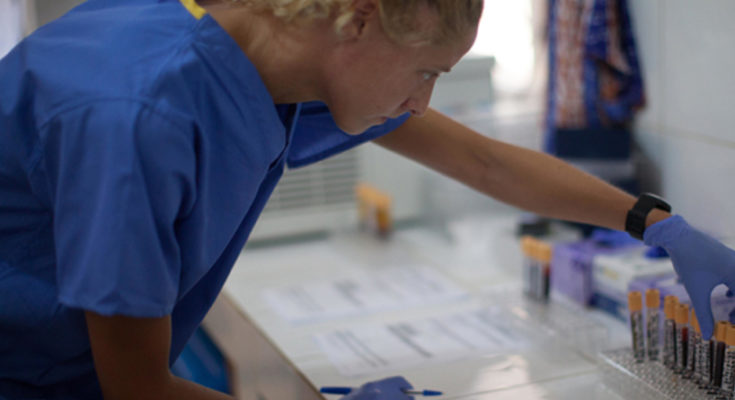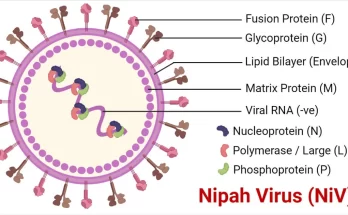First identified in 1976 the EBOLA virus emerged occasionally with isolated outbreaks across Africa, the latest outbreak in west African countries during 2013-2016 period highlighted the need for an effective vaccine this deadly disease. Many scientists around the world studied the virus and conducted intensive research programs to develop an effective virus against EBOLA.
One study funded by WHO, and Norwegian and Canadian governments first expressed effectiveness in several animal trials and later got the WHO approval for human trials. Then the study group started the trial vaccination program in Guinea and Sierra Leone. The results of this trial were published this week in The Lancet, and shows 100% effectiveness of the vaccine against the Ebola virus.
The vaccine, called rVSV-ZEBOV, was studied in a trial involving 11 841 people in Guinea during 2015. Among the 5837 people who received the vaccine, no Ebola cases were recorded 10 days or more after vaccination. In comparison, there were 23 cases 10 days or more after vaccination among those who did not receive the vaccine.
The trial was led by WHO, together with Guinea’s Ministry of Health, Medecins sans Frontieres and the Norwegian Institute of Public Health, in collaboration with other international partners.
“While these compelling results come too late for those who lost their lives during West Africa’s Ebola epidemic, they show that when the next Ebola outbreak hits, we will not be defenceless,” said Dr Marie-Paule Kieny, WHO’s Assistant Director-General for Health Systems and Innovation, and the study’s lead author.
The vaccine’s manufacturer, Merck, Sharpe & Dohme, this year received Breakthrough Therapy Designation from the United States Food and Drug Administration and PRIME status from the European Medicines Agency, enabling faster regulatory review of the vaccine once it is submitted.
Related – The Lancet publication / WHO News release




